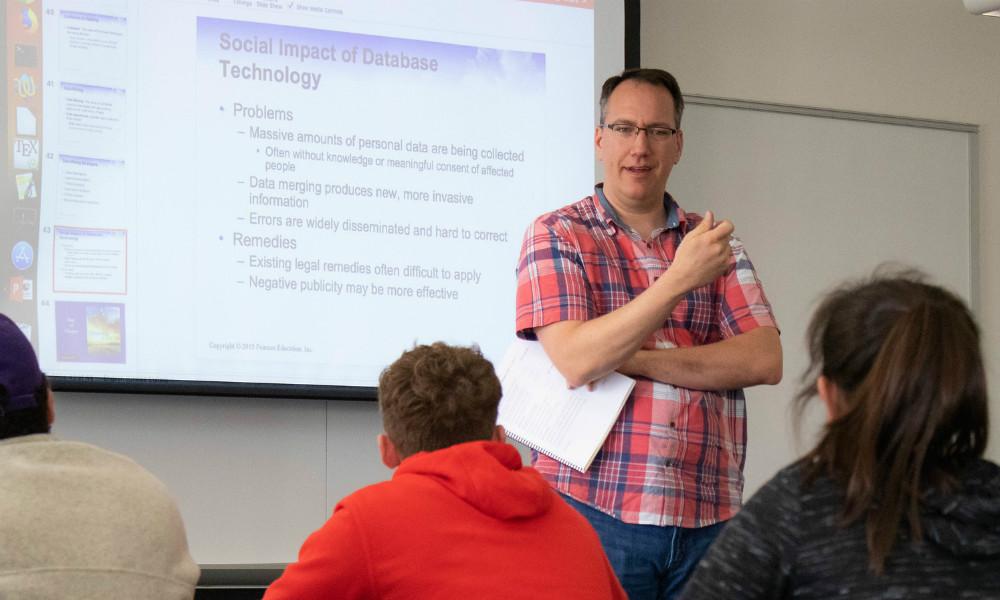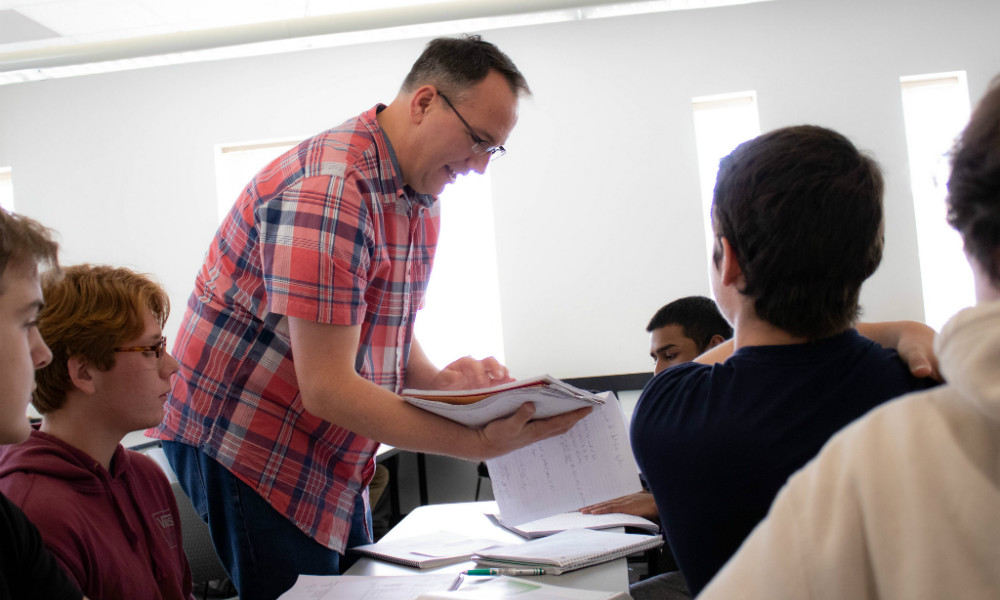Chris Mayfield dedicates his time to the POGIL Project
News
SUMMARY: Computer science professor, Chris Mayfield, goes above and beyond to make sure his students are learning.
By: Sara Banton, Creative Services student writer
Most professors strive to create engaged classrooms, but computer science (CS) professor Chris Mayfield goes above and beyond to make sure his students are learning. He spends hours planning lessons and attending conferences and workshops to ensure that he can deliver the material to students in a way that is both engaging and effective. He employs a learning method called POGIL (Process Oriented Guided Inquiry Learning) in his classroom. Thanks to his work with the POGIL Project and his dedication to education, Mayfield recently received the POGIL Early Achievement award.
In a POGIL lesson, students work through a carefully designed series of questions in small groups. The instructor facilitates interaction among groups. As students work in these groups, they are given a chance to ask each other questions and verbalize what they are thinking.
“As an instructor, I’m giving them feedback about how well they’re doing something and how they can do it better,” Mayfield said. “It’s easier to teach and give feedback in the moment than to design a question on the final that somehow measures that knowledge.”
Having students work together to develop a better understanding of the material also helps students work on interpersonal skills, which Mayfield believes is important to develop for their future careers.
“There’s a sense of community and friendliness in the way they interact with each other,” Mayfield said. “People are already willing to help each other. I think it makes a big difference to the experience of the class.”

Lauren Dorval took CS 149: Introduction to Programming with Mayfield. His method of teaching made the coding assignments easier for her because she grasped a foundational understanding of the material from class discussions and group assignments.
“It’s easier to learn when you’re able to speak to your teacher more easily,” Dorval said. “Mayfield wanted you to ask questions. He wanted to provide assistance. If he could just tell that you might have a question, he’d go up to you, so even if you were scared to ask, you got your questions answered.”
Jacob Campbell took CS 149 and CS 180: Python Programming with Mayfield. He enjoyed Mayfield’s method of teaching, despite being hesitant about the idea of group work at first.
“Working with and learning from peers is a great way to advance understanding,” Campbell said. “Many of the students I have met are willing to help you understand something.”
Campbell hopes to see more POGIL lessons implemented in his other courses, since having students help their classmates understand the material is mutually beneficial. Working in groups also helped clarify any confusion he may have had after Mayfield’s lecture. “Engaging with the material soon after learning it really does help reinforce topics,” he said.
Even though POGIL lessons take a lot more time to plan than a typical lesson, Mayfield believes in the importance of engaged learning like this. “We do it because we think it’ll change education,” he said.
The POGIL Early Achievement award recognizes educators, like Mayfield, who advance the goals of the POGIL Project and demonstrate an exceptional level of enthusiasm for this kind of education. He was nominated for his involvement in POGIL, serving as a facilitator at workshops, writing activities and grants, propagating practice to other faculty and planning POGIL conferences every two years. Mayfield was honored at the POGIL Project’s National Meeting in St. Louis in June 2019.
Learn more about the computer science major
